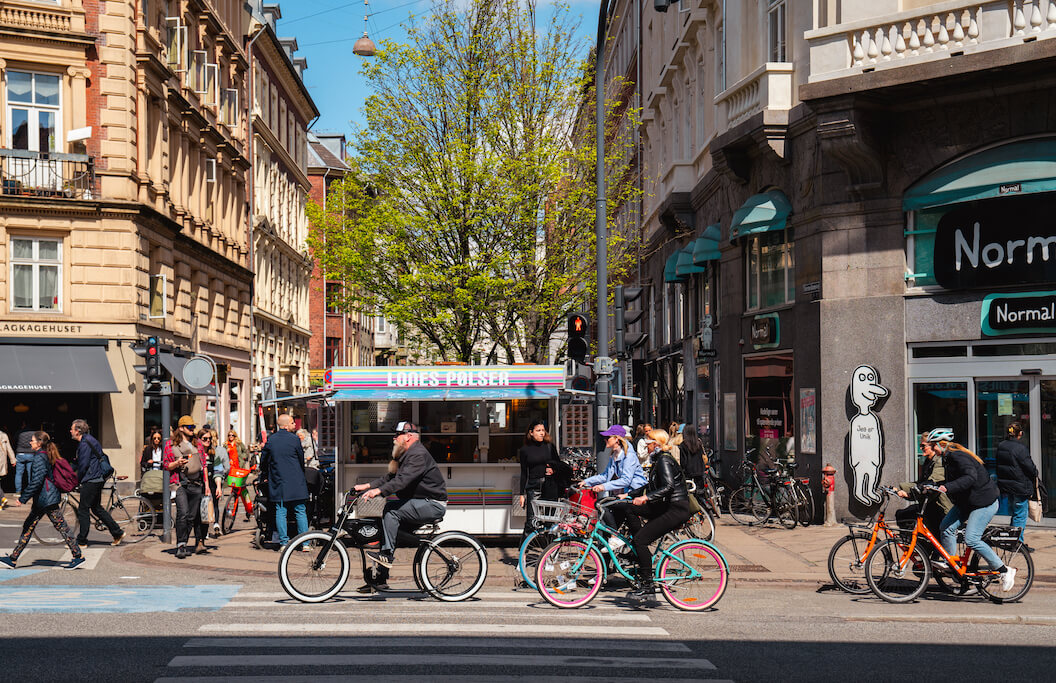Autumn Gear Guide
Find inspiration in our Gear Guide that will keep you out on your bike through wind or rain.
Download NowIn the face of the ongoing climate crisis, a study has highlighted bicycles as a powerful tool for reducing carbon emissions on a global scale. The research, published in Nature Communications: Earth and Environment, reveals that if the entire world embraced cycling patterns akin to those in Denmark and the Netherlands, we could achieve a […]
In the face of the ongoing climate crisis, a study has highlighted bicycles as a powerful tool for reducing carbon emissions on a global scale. The research, published in Nature Communications: Earth and Environment, reveals that if the entire world embraced cycling patterns akin to those in Denmark and the Netherlands, we could achieve a remarkable reduction of up to 686 million tonnes of carbon emissions annually.
Conducted by a team of researchers from the University of Southern Denmark, the study sheds light on the historical trends of bicycle production, ownership, and usage from 1962 to 2015. It uncovers a crucial finding: despite high bicycle ownership rates in many countries, cycling as a means of transportation remains underutilized due to prevailing perceptions that often relegate it to a recreational activity.
According to the study, if people worldwide were to adopt the cycling habits of the average Dane, who cycles just 1.6 kilometers per day, an annual reduction of 414 million tonnes of carbon emissions could be achieved. This impressive figure is equivalent to the total carbon emissions of the United Kingdom in 2015. However, by following the exemplary cycling patterns observed in the Netherlands, where individuals cycle approximately 2.6 kilometers per day, the potential carbon emission reduction could skyrocket to an astounding 686 million tonnes per year.
Transportation currently accounts for a quarter of global fuel-related greenhouse gas emissions, with private vehicles being the primary culprits. With this in mind, the study’s findings offer a glimmer of hope for a sustainable future. By replacing car trips with bicycle rides, we could significantly mitigate carbon emissions and contribute to the overall fight against climate change.

Dutch street life (Visit Copenhagen)
To realize this transformational shift, the study’s authors advocate for urgent global action, encompassing policy support, infrastructure development, and cultural change. They propose implementing policies that discourage car usage through tax incentives, fostering pro-bicycle education and culture, and meticulously planning and constructing dedicated bicycle lanes.
Countries such as Denmark and the Netherlands serve as inspiring examples due to their comprehensive cycling infrastructure, flat terrains, and heightened environmental awareness. By emulating their successful models, the world can unlock substantial untapped climate benefits and steer towards a more sustainable future.
The research, supported by the Natural Sciences Foundation of China, China Scholarship Council, and the Independent Research Fund Denmark, highlights the pressing need for widespread adoption of pro-bicycle policies and infrastructure development. These essential steps have the potential to revolutionize transportation and play a pivotal role in mitigating the climate crisis.
With the evidence presented in this study, it is increasingly clear that bicycles hold tremendous promise as a practical and effective solution to combat the climate crisis. By embracing cycling as a legitimate and preferred mode of transportation, individuals, communities, and nations can collectively contribute to a greener, cleaner, and more sustainable planet. The time for action is now, and the humble bicycle offers a significant part of the solution.
Find inspiration in our Gear Guide that will keep you out on your bike through wind or rain.
Download Now
Leave a comment